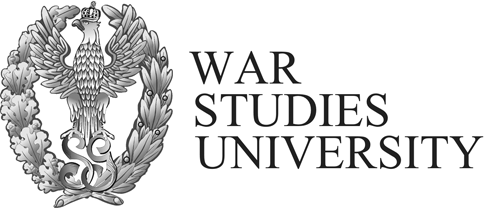The book Why Bharat Matters, authored by Dr. S. Jaishankar, highlights the growing significance of India in today’s global scenario, emphasising its emergence as a key player in shaping the 21st-century world order. This book can be read as a continuation of his previous book The India Way (Jaishankar, 2020) in order to present a strong case for India as Viksit Bharat (Developed India) because of its strategic autonomy, increasing self-reliance, and enhancing global engagement. This book consists of 11 chapters, each addressing various themes centred on India’s positioning in the global landscape, with a focus on the challenges and opportunities which lie ahead. The book’s themes range from the role of foreign policy in shaping India’s future, for both its people and the nation as a whole, to learning lessons from the past and drawing inspiration from historical leaders like Sardar Vallabhbhai Patel and Syama Prasad Mookerjee, while laying the groundwork for India as a leading global power. The book also highlights challenges of digital transformation like data privacy and security. Further, it examines the current state of the world; India’s inclusion in new groupings like the QUAD Group; its strategic approach to China; shift in the security discourse in its immediate and extended neighbourhoods; its aspiration to establish itself as Vishwamitra (friend of the world); and how India as Bharat matters more than ever in today’s international arena. The book emphasises India’s transition from non-alignment to multi-alignment, which reflects a pragmatic approach to international relations. This shift is evident in its active participation in global initiatives, such as the QUAD Group, I2U2 Group, India–Middle East–Europe Economic Corridor (IMMEC), and solar energy commitments. Rather than adhering to ideological camps, India is forging strategic partnerships based on national interests and balancing its engagements with multiple global actors. However, Dr Jaishankar argues that foreign policy alone is insufficient; strong and effective leadership is equally essential for navigating the complexities of the modern world. Leadership, he asserts, plays an important role in ensuring that India remains resilient amid geopolitical uncertainties and economic transformations. The book also underscores India’s multifaceted role as a first responder, a development partner, and a cultural powerhouse.
A unique perspective on India’s global positioning is presented in this book, differing from conventional academic works that primarily emphasise theoretical frameworks. As an experienced and renowned diplomat, who also is India’s External Affairs Minister, Dr Jaishankar adopts a pragmatic and realist approach to provide a policy-oriented analysis based on his practical experiences. His approach shifts the discourse from abstract theorisation to real-world applications, offering insights that are particularly relevant to policymakers and practitioners of international relations. He draws from historical texts, such as the Ramayana and the Mahabharata, and his experiences as a diplomat, to explain the foreign policy shifts and changing international dynamics. References to these epics, along with Kautilya’s Artha Shastra, shows the value of India’s ancient literature as a source of lessons for navigating contemporary international relations.
Therefore, Why Bharat Matters is a thought-provoking book offering insights into India’s foreign policy and shifts, strategic thinking and India’s role in the changing global scenario. The book is not meant for only scholars of international relations but it also presents an interesting read for anyone interested in Indian diplomacy, strategic affairs, and global power shifts. Additionally, one of the vital contributions of the book is that it challenges the Western-centric narratives in international politics and suggests an alternative to Western-centric perspectives on India’s foreign policy. The alternative proposes that India’s views align with the new image of Bharat. Dr Jaishankar critiques the imbalance caused by Western-dominated world order and highlights India’s role as a bridge between developed and developing nations. He seeks to address this imbalance by presenting an Indian perspective, advocating for a decolonised approach to global governance. This provides a crucial alternative for scholars and students seeking non-Western analyses of the world order and power dynamics.
Also, the timing for the launch of this book in the year 2024 was crucial. The book emphasises India’s growing importance, which is evident in events such as India’s G20 presidency in New Delhi in 2023 and inclusion of the African Union as a member of the Group of Twenty (G20). Additionally, India has been a pioneer in various fields, such as technology, semiconductors, climate action, entrepreneurship, strengthening the diaspora, advocating for Ayurveda and millets, fortifying the global supply chain, and supplying vaccines during the COVID-19 pandemic. The country has also launched several operations to assist its diaspora stranded in other countries during times of crisis, such as Operations Ganga, Kaveri, and Devi Shakti, which demonstrate that Indians can rely on their government. Operation Vaccine Maitri focused on the global distribution of vaccines during the COVID-19 pandemic, solidifying India’s reputation as the pharmacy of the world.
Moreover, the relevance of the book increases as the challenges of the transitioning global order have been amplified by the back-to-back impacts of the COVID-19 pandemic, the Ukraine conflict, ongoing disturbances in West Asia, and the Israel–Palestine conflict. As the world grapples with pandemics, global conflicts, climate change, East–West polarisation, and the North–South divide, an opportunity is presented for India to engage with various countries according to its needs, skilfully modifying its foreign policy and exercising diplomacy. Therefore, this book stands out by offering a post-pandemic assessment of India’s economic resilience, technological self-reliance, and diplomatic assertiveness. While many foreign policy discussions focus on historical or regional contexts, Dr Jaishankar situates India within the rapidly evolving multipolar world, emphasising strategic autonomy. Unlike works that examine India’s bilateral engagements in isolation, the author presents a broader vision of India’s role in global affairs, advocating a pragmatic and interest-driven approach, rather than rigid alignments with specific blocs.
However, while this book makes a compelling case for India’s importance, it also has notable limitations that deserve scrutiny. One, there is an overemphasis on nationalist rhetoric, which leads to lack of focus on other socio-political challenges. For instance, in the preface, Dr Jaishankar introduces India as an emerging global power and reflects on his association with Prime Minister Narendra Modi, discussing the evolution of his leadership style. By emphasising his familiarity with Modi, the book subtly highlights the influence of the present leadership on its content, potentially leading to a halo effect. While suggesting that inspiration be drawn from historical leaders, he primarily mentions Sardar Vallabhbhai Patel and Syama Prasad Mookerjee, which draws attention towards some kind of bias. Moreover, Dr Jaishankar focuses on the “decade of change,” portraying India’s transformation from 2014 to 2024, which at times lends the book nationalistic overtones.
Another limitation of the book is its predominant focus on global affairs, with lack of discussion on the domestic challenges that India faces, such as the complexities of South Asian geopolitics beyond India’s relations with China and Pakistan. Issues involving smaller neighbours like Bangladesh, Nepal, and Sri Lanka as well as broader regional security dynamics received relatively little attention. Addressing internal issues is crucial, as they directly impact India’s global standing and influence. By overlooking these aspects, the book misses an opportunity to provide a more comprehensive analysis of how domestic stability and governance shape India’s international engagements and strategic positioning.
Nevertheless, Dr Jaishankar’s Why Bharat Matters is a significant contribution to the discourse on India’s foreign policy and global positioning. The book challenges Western-centric narratives, advocates for strategic autonomy, and offers a realist perspective on international challenges. The author underscores the need for India to balance continuity with change, drawing lessons from its past while navigating global challenges. With a multipolar Asia emerging as the foundation of a multipolar world, India must strategically position itself in the shifting global architecture. Although Dr Jaishankar portrays Bharat as a confident and assertive global player, the book could have been better with deeper engagement on India’s internal challenges and dependencies. While it effectively highlights India’s growing role in global governance, it does not fully address concerns related to economic and strategic vulnerabilities. Despite these limitations, the book remains an essential read, particularly when supplemented with more critical academic and policy-oriented analyses for a well-rounded perspective.




